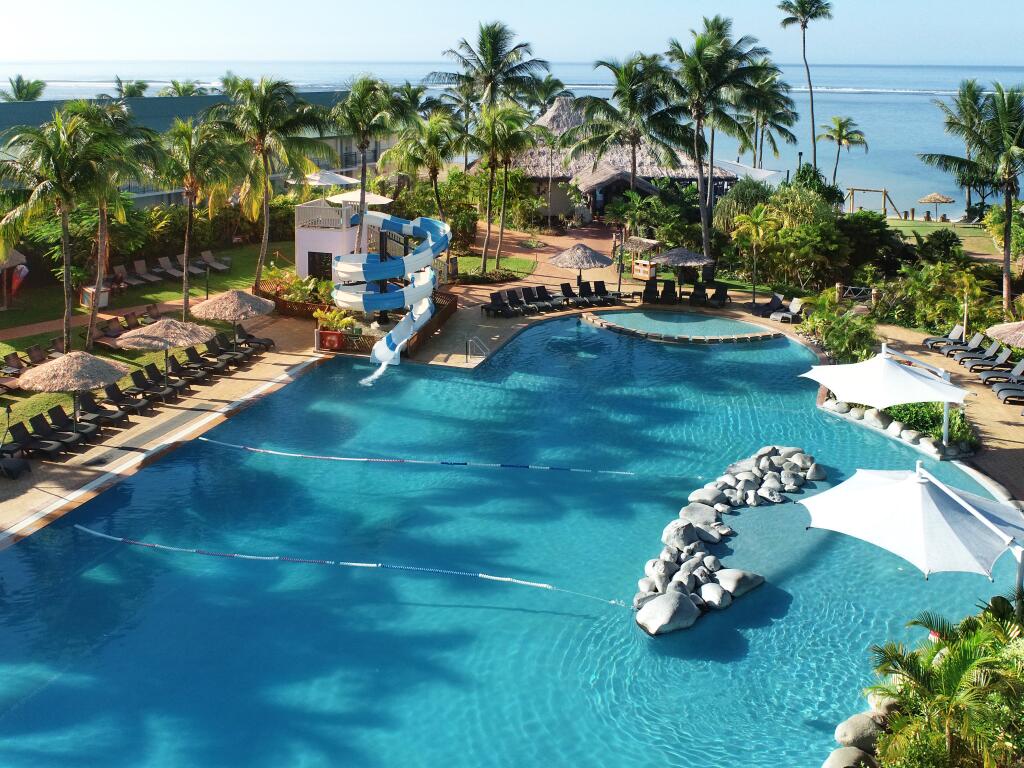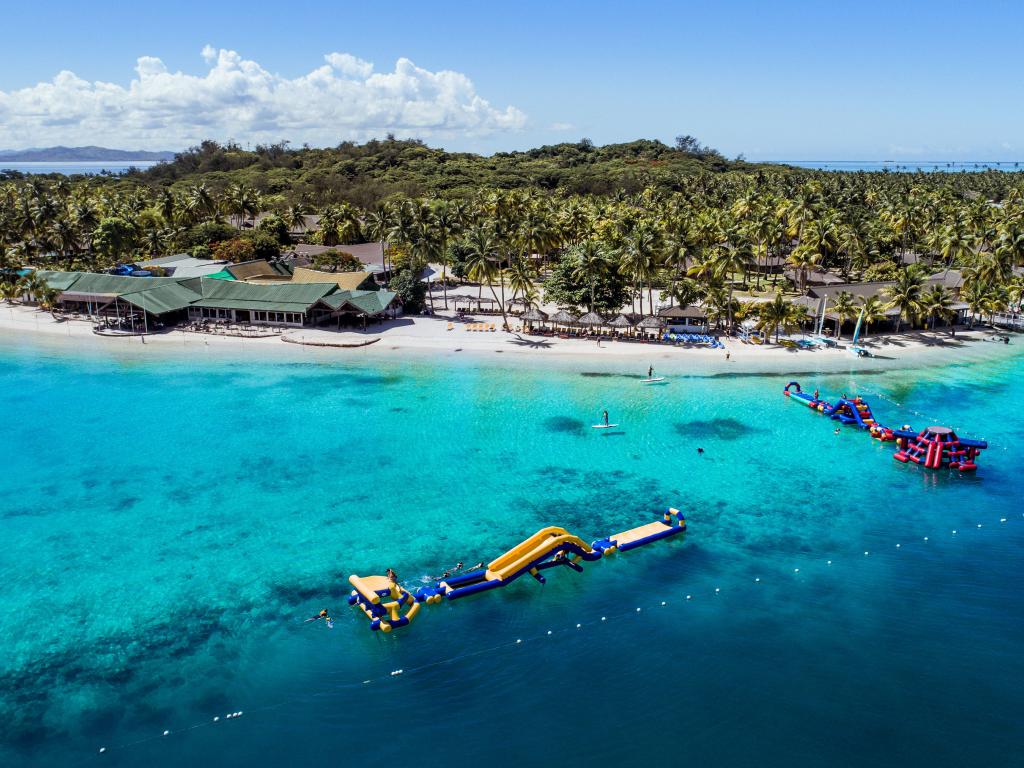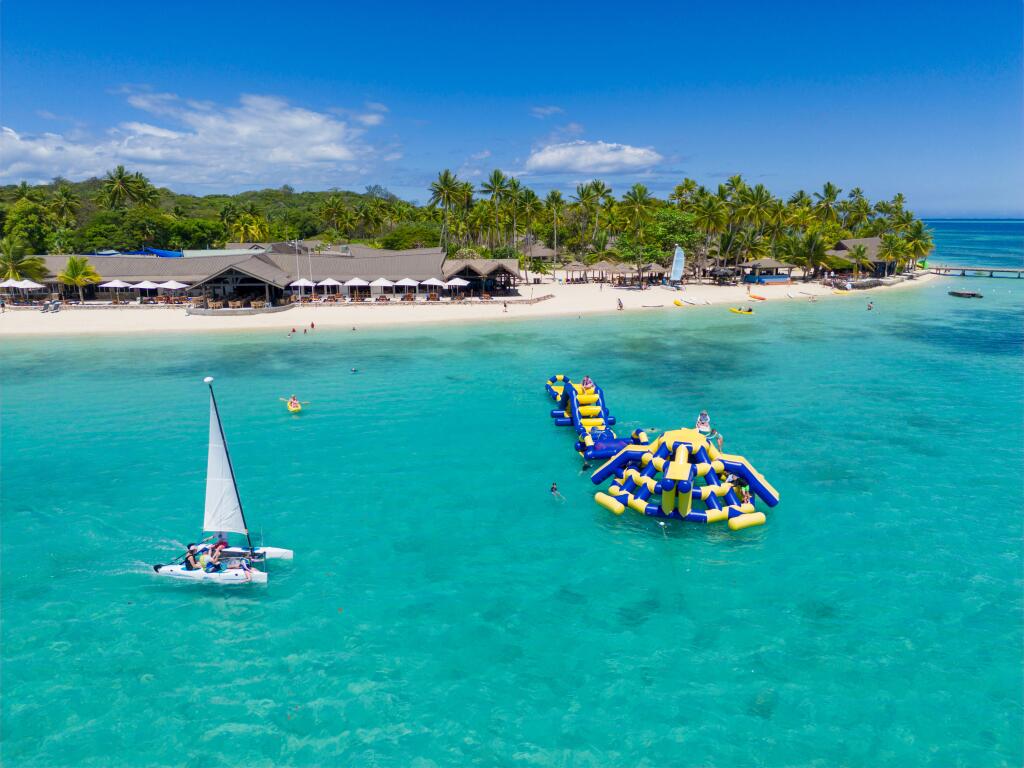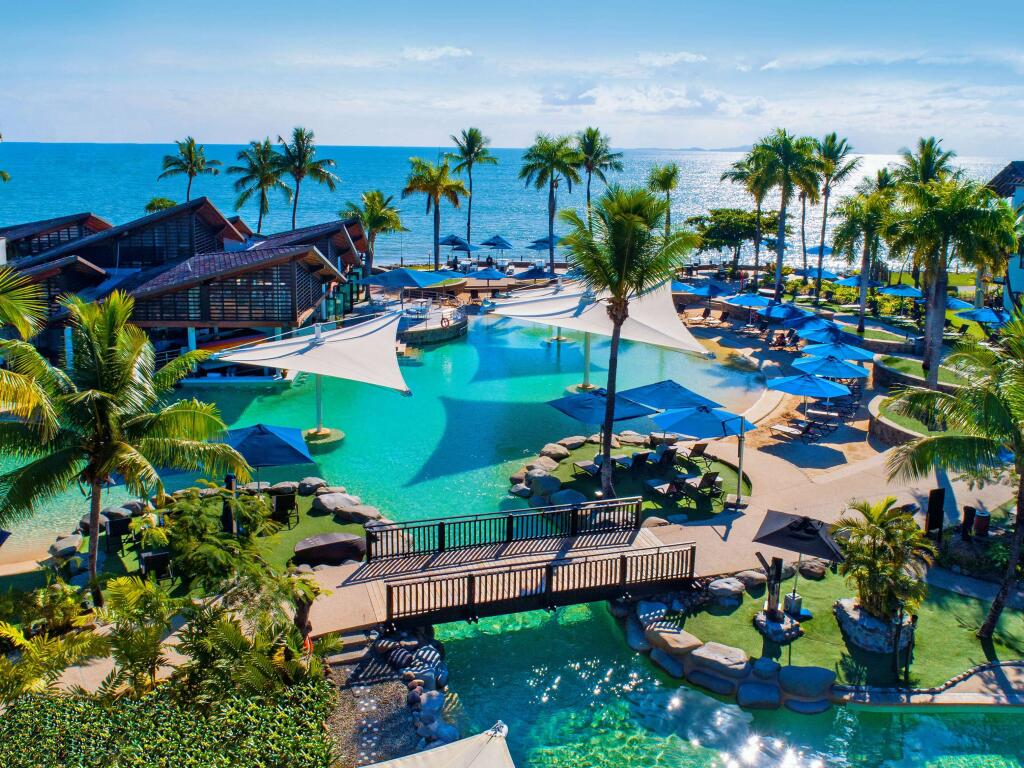Know Before You Go FAQs
Welcome to our simple and straightforward guide answering all your questions about everything you need to know before your next Fiji holiday. From entry requirements and currency to getting around Fiji, car hire and more, you'll find your answers here. Let us answer all your essential travel questions and help you plan your holiday with ease.

Best Time To Visit Fiji
Plan your trip around your holiday priorities. This is our guide to the best times to visit Fiji according to popular holiday interests.
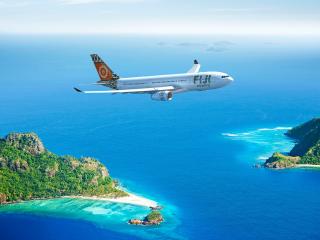
Getting To Fiji
Whether you're looking forward to family-friendly international flight or are planning to visit one of the more remote Fijian islands, discover how you can escape to Fiji.
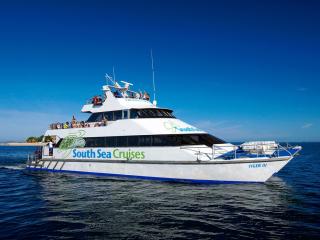
Getting Around Fiji
All you need to know about getting around Fiji upon arrival. From hotel transfers to inter-island ferries, plan your route with our guide to Fiji transport.

Flights To Fiji
Everything you need to know about flying to Fiji., including essential info on the major airlines and routes. Search your next holiday here.
What are the entry requirements for Fiji?
Entry requirements for visiting Fiji vary depending on your country of origin, so it's important to check the latest regulations before you travel. Many nationalities, including Australian passport holders, can enter Fiji without a visa for short stays, but others may need to apply in advance. All travellers must have a valid passport with at least six months' validity beyond their intended stay. Health and vaccination requirements may also apply, so it's best to review the latest guidelines before departure. Australian visitors can find up-to-date entry requirements on the Fiji Immigration website or through the Australian Government's Smart Traveller website, ensuring a smooth and hassle-free arrival.
When is the best time to go to Fiji?
The best time to visit Fiji is between late October and early November for optimal tropical conditions without the holiday crowds. However our favourite thing about Fiji is the year-round warm weather, 12 months of perfect snorkelling temperatures and opportunities for sunbathing. Temperatures tend to average a high of 31°C through the year, so there really is no bad time to go.
Is getting to Fiji easy?
Just 3-4 hours from Australia's east coast, getting to Fiji is almost as easy as taking a domestic flight. Direct international flights from Sydney, Brisbane and Melbourne arrive daily at Nadi International Airport and connect with select transfers to Denarau and the Coral Coast.
How do I get around Fiji?
Getting around Fiji is easy and affordable, with buses and private taxis all servicing the main island. You can also hire a car, however we recommend pre-booking your hotel transfers as part of your holiday package to ensure that your transport to your hotel lines up with your flights. There are daily passenger ferries and water taxis that service the islands and we can assist you in booking these as well.
Can I hire a car in Fiji?
Car hire is available at Nadi airport. All you require is a valid driver's license in English and a credit card. Driving around Fiji is a lovely way to see the island and the national speed limit is 80 km/h, but don't forget to slow down as you pass through villages and make sure you stop for a scenic photo opportunity.
Is Fiji a good destination to take children?
Fiji is the perfect international holiday destination for kids. Situated just a few hours from Australia's east coast, the short flight time and abundance of activities makes it ideal for families. Boasting myriad entertainment options designed with children in mind, most resorts also offer tailored kids clubs and family-friendly facilities.
Are things expensive once I arrive in Fiji?
Fiji is surprisingly affordable, despite the costs you may usually associate with luxury resorts and private islands. We recommend getting outside your resort to discover affordable local options, however living the Fiji resort lifestyle can become much cheaper by taking advantage of the meal plans on offer. Dining and drinks are often the most expensive part of being on holiday, so the world-class buffets on offer are a great way to fill up for less. Booking these in advance as part of your package minimises the amount of spending money you'll need once you arrive in Fiji. While Fiji is not the cheapest island holiday destination, it's certainly not the most expensive. Australian travellers can expect prices to compare to home.
Is there any special clothing or equipment I should take to Fiji?
Remember to pack your swimwear, broad-brimmed hats and sunscreen - Fiji is the land of sea, sand and resorts after all. If you're planning on exploring the waters, we recommend bringing a pair of reef shoes to protect your feet from coral and sharp rocks. If you do forget anything, there's no need to worry as Fiji has been welcoming international tourists for decades and is well-equipped to help you replace anything you may have left behind.
Are there ATMs in Fiji and can I use my credit card?
ATMs are available at all airports, in some hotels and throughout major towns and cities. For Australian travellers, Westpac and ANZ ATMs can be found across the islands. While travellers will be charged a conversion fee, credit cards are accepted in many hotels, restaurants and tourist destinations. If you are travelling to remote islands, remember to take out cash just in case.
What is the currency in Fiji?
The currency in Fiji is the Fijian dollar ($FJD).
Do I need to tip in Fiji?
Tipping is not expected nor necessary in Fiji. As Fiji is a communal society, locals share almost everything. However, if you wish to express your appreciation by tipping, it will be genuinely appreciated.
Are there any restrictions on buying alcohol in Fiji?
While you must be 18 years old to purchase alcohol in Fiji and liquor sales are prohibited on a Sunday, there are no other restrictions. Many people recommend purchasing alcohol in Duty Free upon landing as prices fluctuate across the islands.
Do I need a passport and visa to travel to Fiji?
Australian citizens don't require a visa to enter Fiji for stays less than 4 months. You will however require a passport that is valid for at least 6 months beyond your intended stay.
Can I use my phone and internet in Fiji?
Internet coverage across Fiji is generally good, though patchy on some remote islands. WiFi hotspots can be found in most tourist locations, especially in and among the hotels and resorts. You should also find internet kiosks in many hotels and towns.
With an unlocked phone, you can purchase a prepaid sim at the airport or speak to your provider at home and request to turn on international roaming.
Can I use my normal electrical plugs in Fiji?
Australian visitors can use the same plugs and sockets in Fiji as they would at home. The voltage is not exactly the same as home but is similar and should not harm your electronics.
Do I need travel insurance to travel to Fiji?
Yes. Despite being located so close to home, travellers should always take out travel insurance. Regardless of your good health or preferred style of holiday, travel insurance protects you against accident, illness or injury. Insurance also covers you and your family in case of acts of nature, lost or stolen luggage and in light of unexpected changes to your travel plans.
Is Fiji a wheelchair accessible destination?
The friendly and inclusive people of Fiji have worked hard so that visitors with mobility issues or who require the use of a wheelchair will be able to visit the island paradise. Fiji is one of the most welcoming holiday destinations in the Pacific and the island has implemented accessible infrastructure and more wheelchair-friendly accommodation options and facilities to ensure that everyone who comes to Fiji can have a relaxing and enjoyable holiday. We've put together a list of some of the most wheelchair accessible Fiji accommodation to help make holidays with a wheelchair easier for people with disabilities and mobility restrictions.

